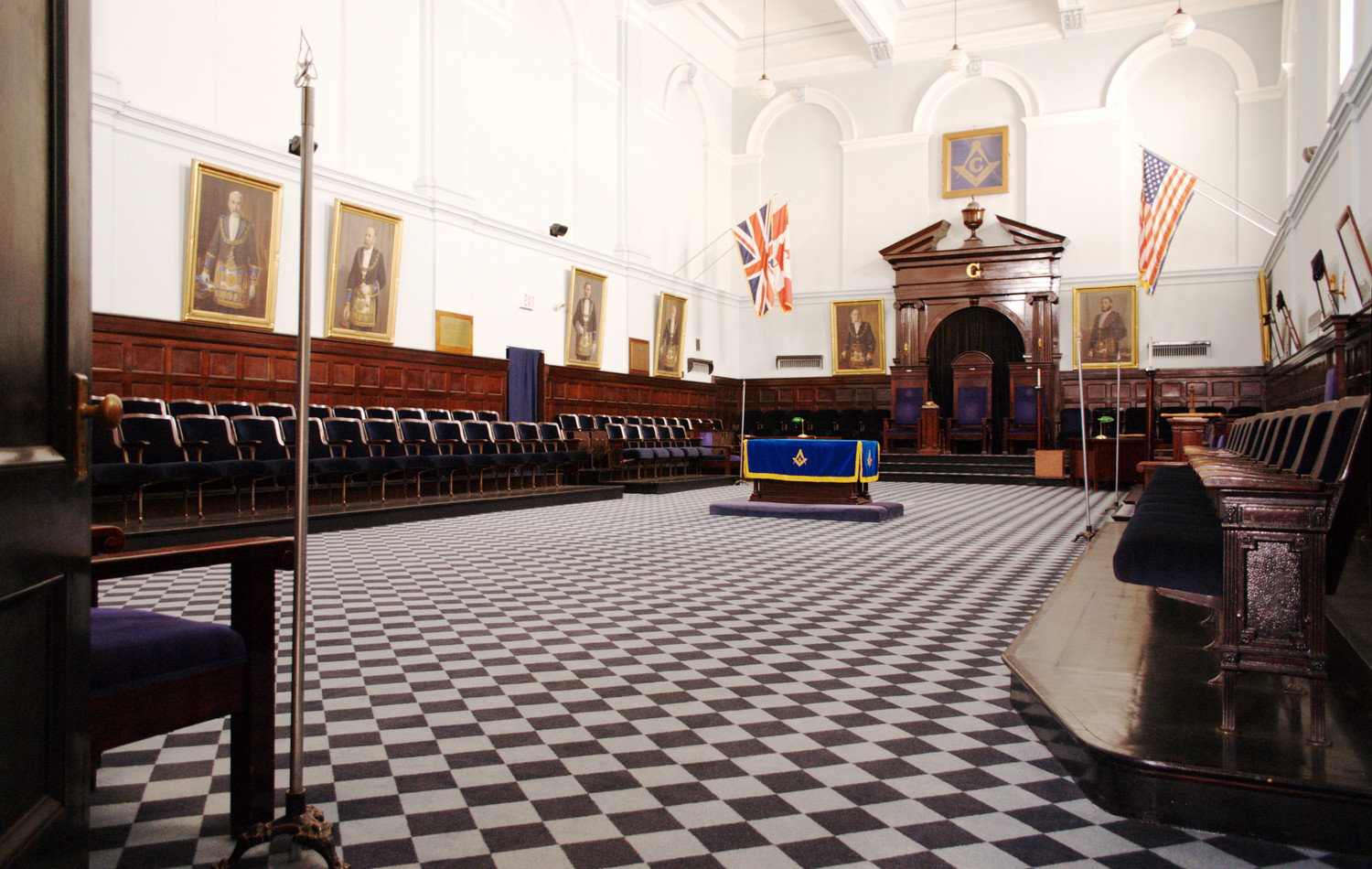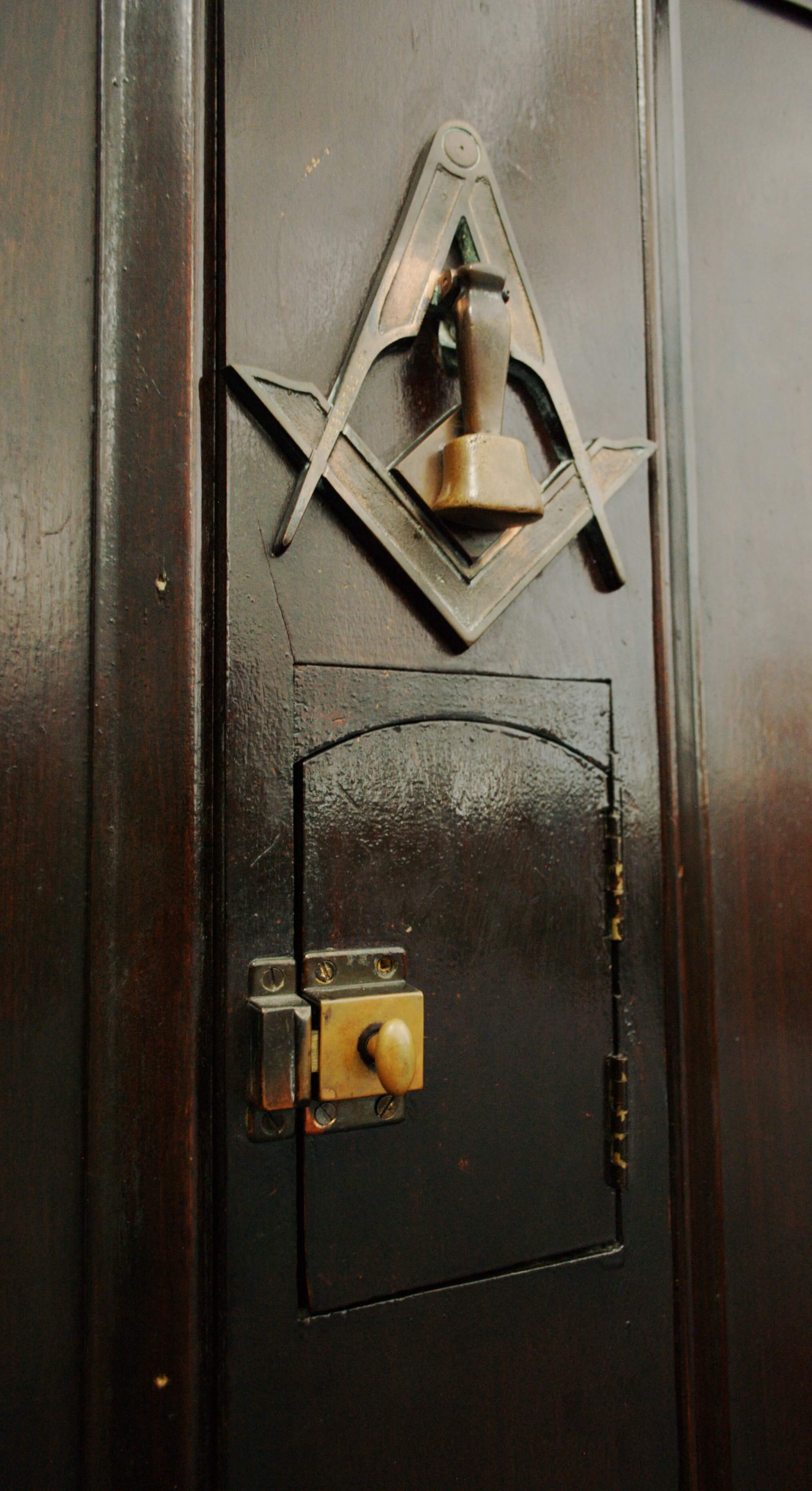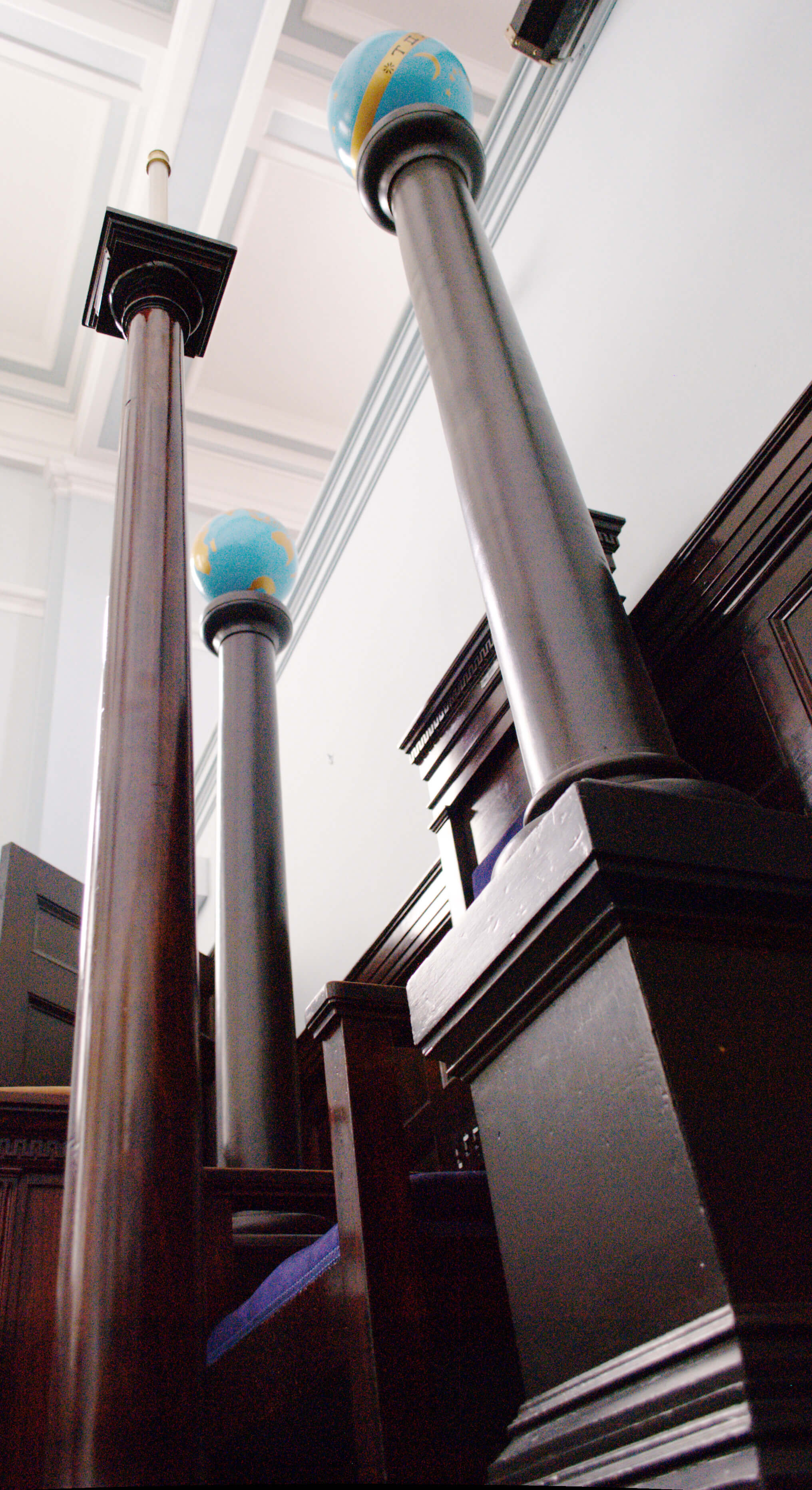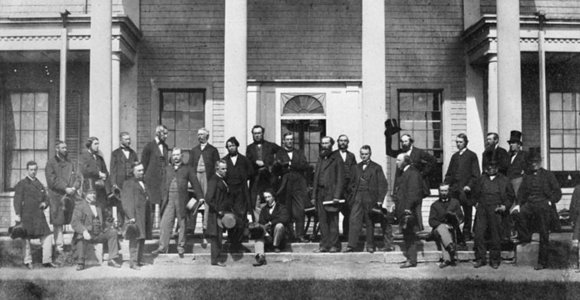History

Annual Communication
The Annual Communication of the Grand Lodge of New Brunswick is held in the Blue Room of the Saint John Masonic Temple commencing on the Friday preceding the second Saturday in May each year.
History of the Grand Lodge of New Brunswick
Historically, Freemasonry had its beginnings in New Brunswick in 1783, towards the end of the great migration of Loyalists from the conflict in the United States.
New Brunswick became a separate province in 1784, and in September of that year, Hiram Lodge in Parrtown (now Saint John, NB) received a dispensation as Lodge #17. St. George Lodge was established at Maugerville (pronounced “Major ville”) in 1788, and New Brunswick Lodge in 1789. Over the next 37 years other lodges came into existence under the authority of the Provincial Grand Lodges of either Nova Scotia, England, Ireland or Scotland.
With the number of lodges in New Brunswick increasing, initial steps were taken in 1827 to form a Grand Lodge in this province. After 2 years of organizing, a Grand Master was actually elected. For some unknown reason the body failed to hold another meeting and the effort apparently died a natural death.
Nothing further occurred until 1855 when a Deputy Provincial Grand Lodge came into being. Four years later, this status was raised to Provincial Grand Lodge, and in 1865, to District Grand Lodge. Finally, on Oct 9-10, 1867, 19 lodges met and decided to declare their independence by uniting under their own governing body. After a long and somewhat tumultuous start, the present day Grand Lodge of New Brunswick had finally arrived. The current Grand Lodge of New Brunswick was actually formed the same year as The Dominion of Canada.
Benjamin Lester Peters became the first Grand Master of the Grand Lodge of New Brunswick.
The Charlottetown Conference
Backgrounder – Canadian Fears
The Province of Canada’s (Upper & Lower) interest in creating a federal union with the Maritime Provinces was mainly due to external threats. A huge army was formed in the United States during the American Civil War. Meanwhile, Britain wanted to reduce its financial and military obligations to its North American colonies. These factors led to fears in Canada of American annexation. The province (Canada) had also had a series of weak and unstable governments. This fueled the demands for change and the pressure for a new political structure.
When Canadian political leaders learned through Samuel Tilley of the upcoming conference in Charlottetown, they seized on the chance to attend. They sent a delegation that hadn’t been invited by the Maritime organizers but was welcomed anyway.
Masonic Fathers of Confederation
At the time of confederation in 1867, eleven men of the 37 Fathers of Confederation were Freemasons.
- Hewitt Bernard – Lawyer, Recording Secretary at the Charlottetown Conference
- Alexander Campbell – Senator (1867–1887), Lieutenant Governor of Ontario (1897–1892)
- Frederick Carter – First Premier of Newfoundland
- Edward Barron Chandler – Lieutenant Governor of New Brunswick (1878–1880)
- Alexander Tilloch Galt – Minister of Finance (1867), Founder of the North Western Coal and Navigation Company and Lethbridge, AB
- John Hamilton Gray – Premier of New Brunswick (1856–1857)
- Thomas Heath Haviland – Senator (1873–1879), Lieutenant Governor of Prince Edward Island (1879–1884)
- William Alexander Henry – Mayor of Halifax (1870–1871), Supreme Court Justice (1875–1888)
- John A. Macdonald – First Prime Minister (1867–1873, 1878–1891)
- William Henry Pope – Lawyer, Newspaper Editor, Colonial Secretary
- Samuel Leonard Tilley – Pharmacist, Premier of New Brunswick (1861–1865), Lieutenant Governor of New Brunswick (1885–1893 and 1873–1878), Originator of “Dominion” in Canada’s name
Whether by coincidence or planning, almost a third (30%) of Canada’s Fathers of Confederation were part of this ancient order. By comparison, only nine of the 56 signers of the American Declaration of Independence were Freemasons, only 16%. Food for thought!



